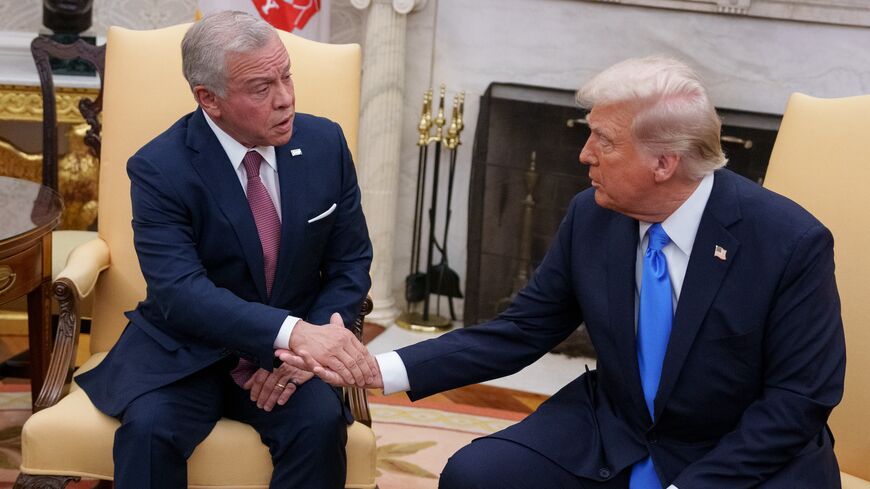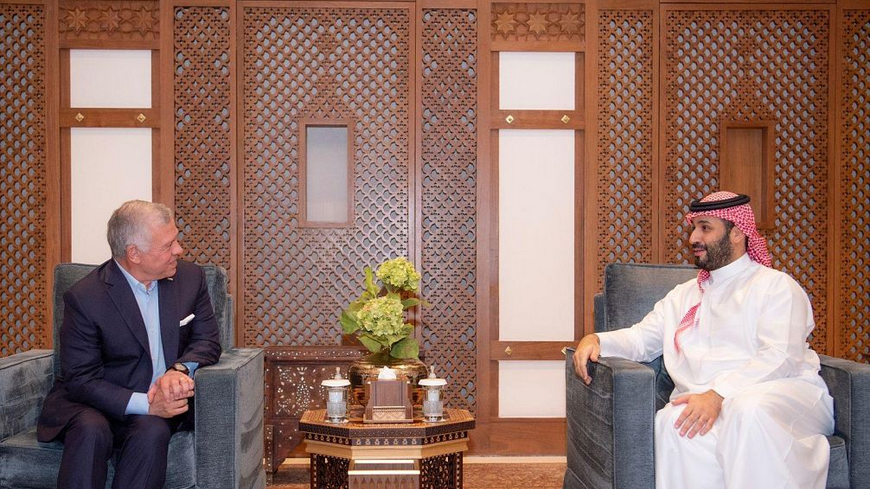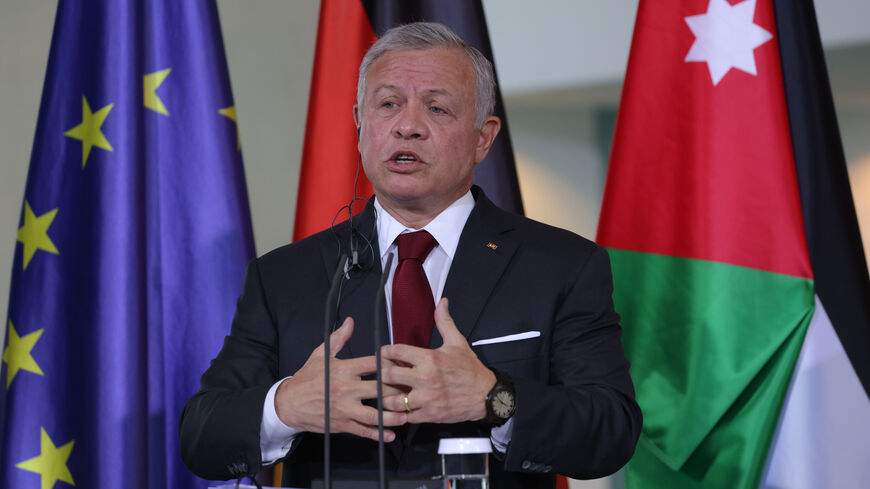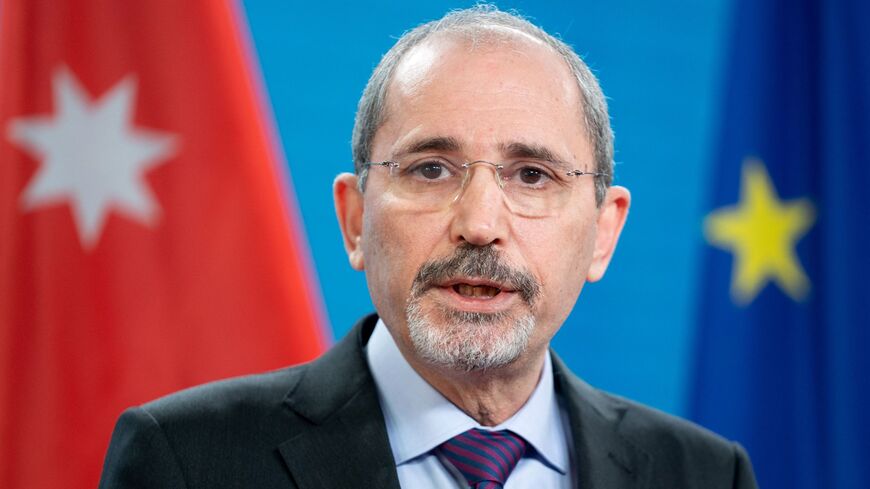Jordan's King Abdullah set to meet Biden as Gaza tests ties
King Abdullah II must balance Jordan's dependence on the United States with public anger over US support for Israel's war in Gaza.
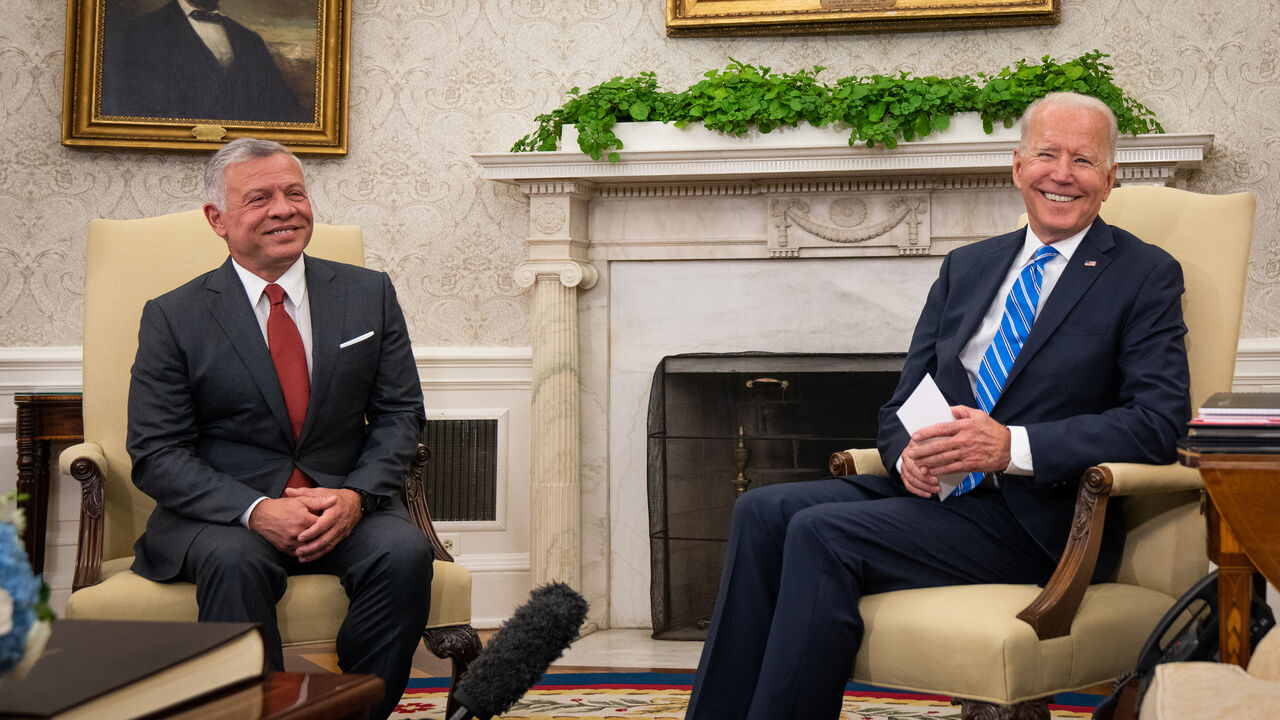
WASHINGTON — When Jordan’s King Abdullah II meets with President Joe Biden on Monday, he will be the first Arab head of state to set foot in the White House since the United States threw its support behind Israel’s war in the Gaza Strip.
His visit is seen as a testament to the key role that Jordan, which shares a long border with Israel and the Palestinians in the West Bank, plays as a peace broker in their decades-long conflict.
The king is visiting the United States and several other Western countries to make the case for an immediate cease-fire between Israel and Hamas, without which Jordan fears further regional instability and an influx of Palestinian refugees on its doorstep.
Health officials in the militant-run territory say Israel’s military campaign, now in its fifth month, has killed more than 28,000 people and wounded over twice as many. Those numbers are expected to rise significantly if the Israeli military makes good on its pledge to advance on Rafah, the southernmost city in Gaza where half the territory’s population is now crammed along the border with Egypt.
The Jordanian king, who visits the United States often and prides himself on his close relations with American presidents, likely feels he can speak frankly to his country’s most powerful ally, said Curtis Ryan, a professor of political science who studies Jordan at Appalachian State University.
“This may be one last roll of the dice to get powerful Western allies to listen,” Ryan said.
Domestic pressure over US ties
Abdullah was the first Arab leader to meet with Biden at the White House in 2021, an indication that the United States wanted to reset a relationship that under the former Trump administration was devalued in favor of Saudi Arabia and other Gulf states.
But US-Jordan ties have since come under increased scrutiny in the Hashemite kingdom, where many see the United States as an enabler of Israel’s war in Gaza.
Thousands of Jordanians have taken to the streets in protest, with some calling for their government to abandon not only its 1994 peace treaty with Israel but its defense agreements with the United States.
The domestic pressure was on display in October when a deadly blast at a hospital in Gaza — initially blamed on Israel but later attributed to a misfired militant rocket — led Jordan to abruptly cancel a summit it was hosting in Amman with Biden and the leaders of Egypt and the Palestinian Authority.
For 30 years, the United States has been the largest provider of assistance to Jordan. Some 3,000 American troops are stationed on its soil, including at Tower 22, the site of a drone attack by Iran-backed militias in Iraq that killed three American troops last month.
Despite the palpable anger among the Jordanian public, Ryan said there “may be an increasing gap here between state and society on this issue, because the monarchy and the government tend to see the US military presence on the borders as key to the kingdom's security.”
During the king’s visit to Washington, he and Biden will discuss “efforts to produce an enduring end to the crisis” as well as “a vision for a durable peace to include a two-state solution with Israel’s security guaranteed,” White House Press Secretary Karine Jean-Pierre said in a statement Thursday.
The Biden administration has proposed a lengthy pause in the fighting to secure the release of the hostages held by Hamas, a plan it hopes will pave the way for a broader diplomatic deal to permanently end the war. The administration’s strategy for postwar Gaza would also link normalization between Israel and Saudi Arabia to a pathway for a future Palestinian state.
Jordan is seeking “a once-and-for-all answer to this challenge” that addresses Gaza, the West Bank and east Jerusalem, the country’s foreign minister, Ayman Safadi, told Al-Monitor in a December interview. But as long as the bloodshed continues, he and other Jordanian officials have said conversations over Gaza’s eventual reconstruction and future governance are premature.
'Existential' issue for Jordan
“It has to start with the cease-fire, from Jordan’s perspective, in order to be able to have a conversation about the day after,” said Merissa Khurma, the program director of the Middle East Program at the Wilson Center.
Khurma described the Palestinian-Israeli conflict as an issue not only central in Jordan’s foreign policy but existential.
Israel’s campaign in Gaza has evoked fears of a second Nakba, a reference to the expulsion of at least 750,000 Palestinians from their homes in 1948 during the Arab-Israeli war that established the modern state of Israel. Jordan is also concerned that the growing violence by Israeli settlers could destabilize the neighboring West Bank and cause more refugee spillover. Far-right Israeli politicians have attempted to revive the idea of Jordan as an alternative homeland for Palestinians.
Jordan already hosts the world's largest number of Palestinian refugees at more than 2 million, according to the United Nations. The king is expected to press the Biden administration to resume the funding it paused to the UN’s Palestinian refugee agency over allegations that some of its employees participated in Hamas’ Oct. 7 attacks.
The United Nations Relief and Works Agency provides services in 10 Palestinian refugee camps across Jordan and has warned it could be forced to shutter its operations in Gaza and across the region following the funding cuts from international donors.
The issue of forced displacement is a uniquely domestic one in Jordan, where more than half of the population is of Palestinian origin, including Queen Rania, who was born to Palestinian parents in Kuwait.
The queen, who will accompany the king on his White House visit, has been unusually vocal in her criticism of Israel’s war and what she called a “glaring double standard” in the Western media’s coverage of it.
Like many of its Arab neighbors, Jordan’s leaders are likely concerned about the potential for radicalization among young people who are watching Israel’s military campaign unfold on social media. Polling conducted in November and December by the Washington Institute for Near East Policy found 85% of Jordanians held a “positive” view of Hamas, compared to the 44% who said the same when polled in 2020.
The Gaza crisis is also likely to empower Islamists, including the Muslim Brotherhood’s Islamic Action Front party, ahead of Jordan’s parliamentary elections in August, Khurma said.



